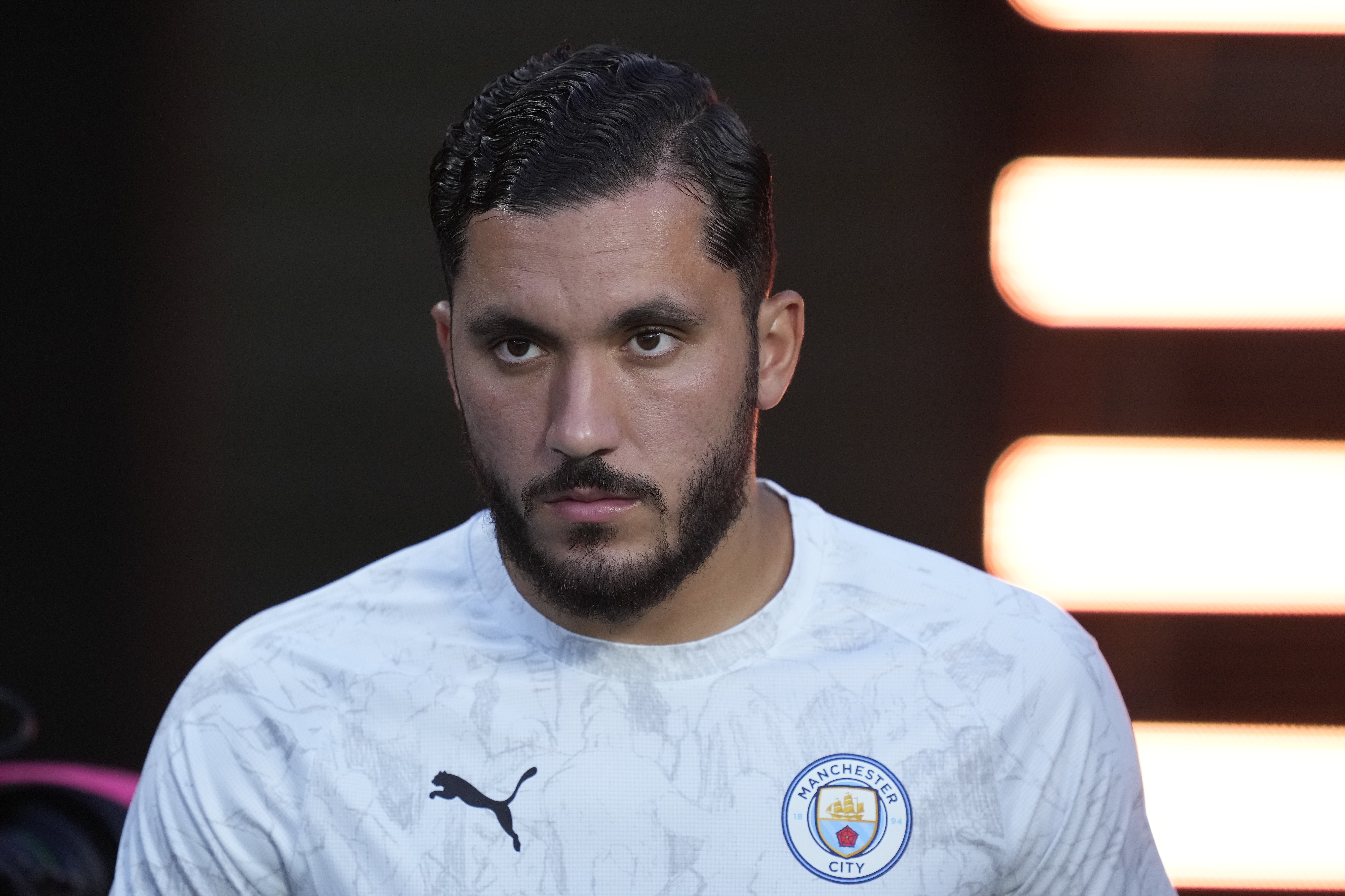Leaks, mutiny and media malaise: the inside story of Moyes's Man United disaster
Long-time FFT contributor and United We Stand editor Andy Mitten lifts the lid on 10 months of discontent at Old Trafford...
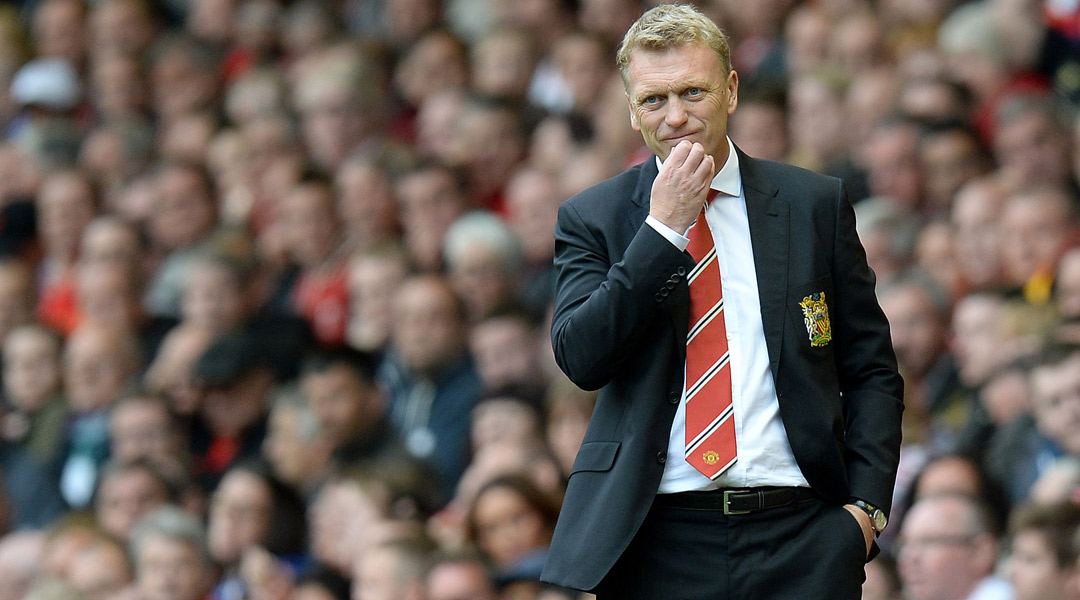
The best features, fun and footballing quizzes, straight to your inbox every week.
You are now subscribed
Your newsletter sign-up was successful
Want to add more newsletters?

Five times a week
FourFourTwo Daily
Fantastic football content straight to your inbox! From the latest transfer news, quizzes, videos, features and interviews with the biggest names in the game, plus lots more.

Once a week
...And it’s LIVE!
Sign up to our FREE live football newsletter, tracking all of the biggest games available to watch on the device of your choice. Never miss a kick-off!
Join the club
Get full access to premium articles, exclusive features and a growing list of member rewards.
It's March 2014 and the former Manchester United first teamer is asked: "Would Ryan Giggs be up for managing Manchester United? And would he be good at it?"
The player knows Giggs exceptionally well, but he pauses to think about the answer. Then he nods and replies: "Ryan wouldn't take any s***, there would be no danger on that front."
Sir Alex Ferguson once claimed Giggs's greatest asset was a bulls*** filter capable of sifting out the unnecessary. That he could see hangers-on a mile off and that, when he'd established himself as a senior player, he would pull younger United team-mates aside and ask how many of the people they were out with at the weekend were friends before they became famous footballers. If the answer was not many, they were socialising with the wrong people.
On Sunday, as he returned from United's anaemic defeat at Goodison Park to Manchester, Giggs was asked if he'd take over at the club he's served for 24 years until a new manager could be found. He agreed to it and in doing so realised an ambition to be United manager, the club's second player-boss. Clarence 'Lal' Hilditch was the other, between October 1926 and April 1927. Like Giggs, he was a left-winger.
The best features, fun and footballing quizzes, straight to your inbox every week.

Calls were put in to Paul Scholes, who was on an Easter break with his family. Scholes was asked to help out with coaching. He's been taking courses himself, though his diary was free, if not short of invitations. Athletic Bilbao wanted him to be the guest of honour alongside Jorge Valdano at a film festival of their charitable foundation later this month. They'd noted that Scholes had referenced the Basque club in a complimentary manner in the Class of '92 film and invited him, perhaps also to watch the first team and young players train.
Scholes was an unusual trainer himself, as Mike Clegg, United's power development coach between 2000 and 2011, recalls: “He’d get ill, he had asthma. I wouldn’t consider him an athlete: his endurance capacity was low; he wasn’t strong, quick or powerful. His cognitive processing was better than any other player; he knew exactly what was going on around him. He was the best at reactions.”
Clegg had watched how Giggs continually opened his mind to new ideas to extend his longevity on a football field, while Scholes's unorthodox approach – he'd rather ping a ball at an unsuspecting head 70 metres away – shouldn't mask that he's a serious professional with the trophies and games to back it up.
The pair will spend the rest of the season working alongside Nicky Butt, who will move up from working with United's reserves to take charge of the first team. Current coach Phil Neville will also be involved until United appoint a permanent manager.
Persian persuasion
Two weeks before the chat about Giggs, FourFourTwo travelled to Tehran to see Iran manager Carlos Queiroz, armed with the good wishes of several of his former players. By the end of his second spell at the club in 2008, those players had taken to the man Ferguson described as "brilliant, just brilliant. Outstanding. The closest you could be to being the Manchester United manager without actually holding the title."
When he arrived in 2002, Queiroz surprised players by calling them by their surnames in training. One or two perhaps envied his close relationship with Ferguson, who entrusted him entirely with training (to Queiroz's initial surprise, as he'd not prepared any training sessions on his first day), but Queiroz was seen as an excellent employee.
Had timings been different, Queiroz would now be manager of United with Giggs as his assistant. Had Ferguson stepped down in 2007, Queiroz and Roy Keane would have been favourites for the job.
Iran's manager granted FourFourTwo an interview over four hours in a hotel where his team slept. The 61-year-old used to buy the magazine when he lived in Manchester, a city he was reluctant to leave.
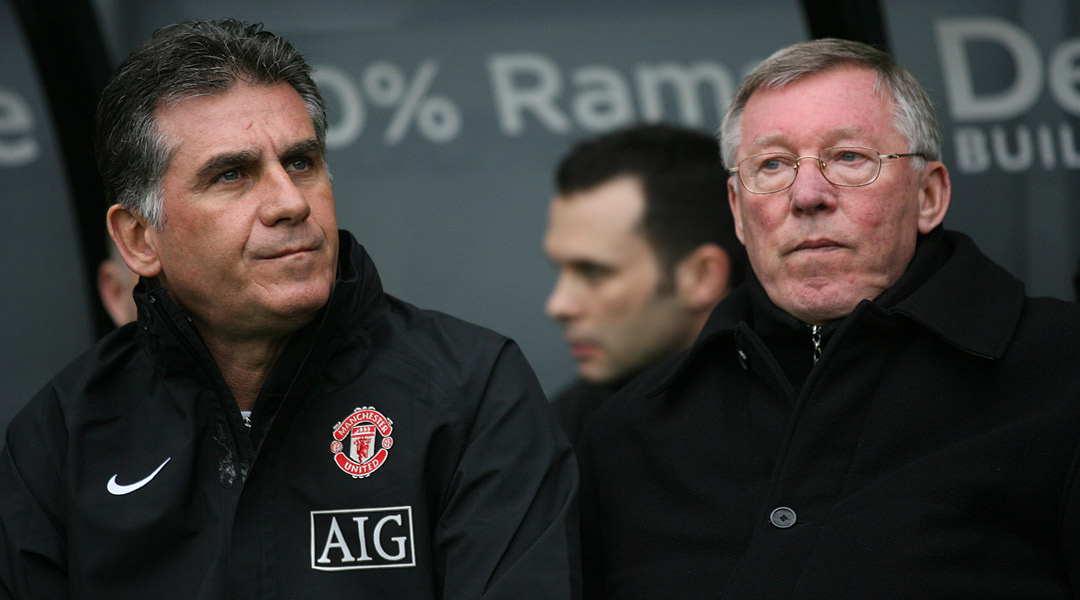
"It was like choosing between two lovers," he said of Portugal and Manchester United, whom he left in 2008 when the club were European champions.
Maybe that's why he agreed to help us get into Iran and write a piece when 62 foreign journalists had been declined. It still took five months of effort and considerable expense before a three-day trip to collect the visa in Dublin, before flights to Tehran, via Istanbul.
The Iran article is in the current issue of the magazine, to be followed by a further, in-depth interview, but towards the end of our discussions, the former Real Madrid coach and twice assistant manager of United discussed his future after the World Cup when his Iran contract expires. "I'm fortunate to have had several offers," he said, choosing his words carefully. "I'd prefer to manage a national team, but a team in the Premier League would be hard to turn down."
The May issue of FourFourTwo, featuring Quieroz, Aguero, Fowler, Matic and more, is available now in print and on iPad
Queiroz was linked with United when David Moyes was dismissed on Tuesday, though the club have identified Louis van Gaal and Real Madrid's Carlo Ancelotti as their principal targets. Hours after dismissing Moyes face to face, Ed Woodward was in Madrid, where the Champions League semi-finals were also being staged. United want to go with the tried and tested, not take another risk as they felt they did with Moyes.
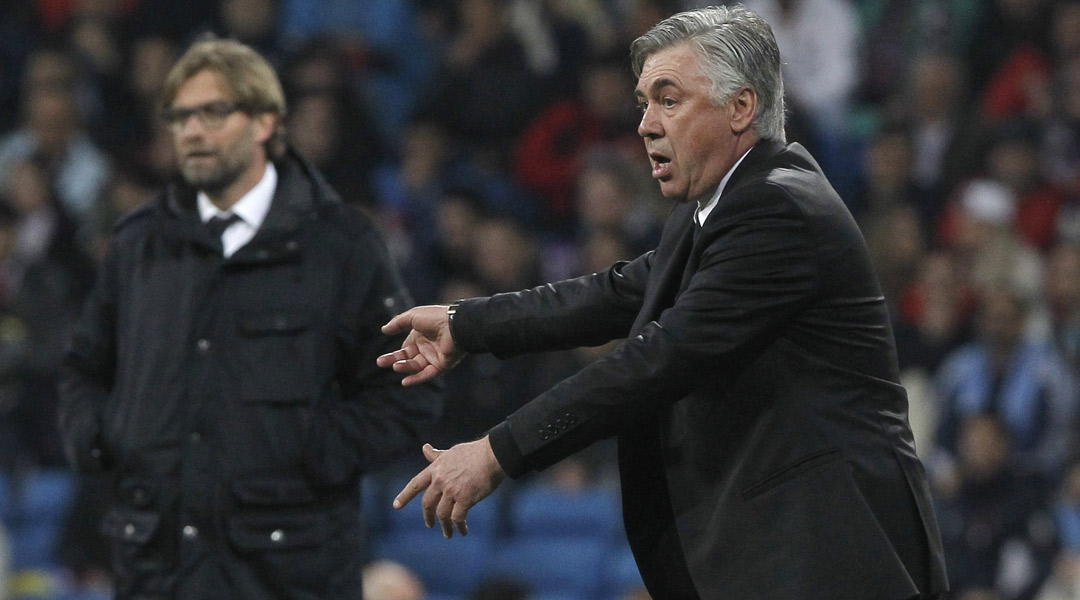
Van Gaal's contract with the Netherlands is up after the World Cup, while Ancelotti works at a club who've changed their boss an average of once a season over the last quarter of a century, an institution where the coach isn't the only person influencing team selection from the sidelines.
Whoever gets the United job is likely to be given time, but that's what Moyes thought when he found out he was to replace Ferguson a year ago. Giving Moyes a six-year contract, United were serious about bestowing upon him the level of power which Ferguson had thrived on rather than employing a sporting director as at other major clubs.
Money over matter
The Glaswegian wasn’t the only one learning on the job. Executive vice chairman Woodward had been at Old Trafford for eight years, but was elevated to chief suit having replaced David Gill, an experienced and respected operator, though one criticised by some fans for his role in the Glazer takeover. Like Moyes, Woodward could hardly say no.
In September, I interviewed Woodward near United’s Mayfair office, which is used to attract sponsors who are more likely to stop in London than Manchester. Woodward had been successful in attracting sponsors to Old Trafford and listed some of the people who'd visited United in London.
"We've had the NFL commissioner," he said. "He’s the most powerful man – in theory – in American sport. He heard our story and then said: ‘This is the best run sports marketing agency in the world.’
"We’ve had Formula One teams come to us and other sports clubs, or people asking how on earth we’re doing it."
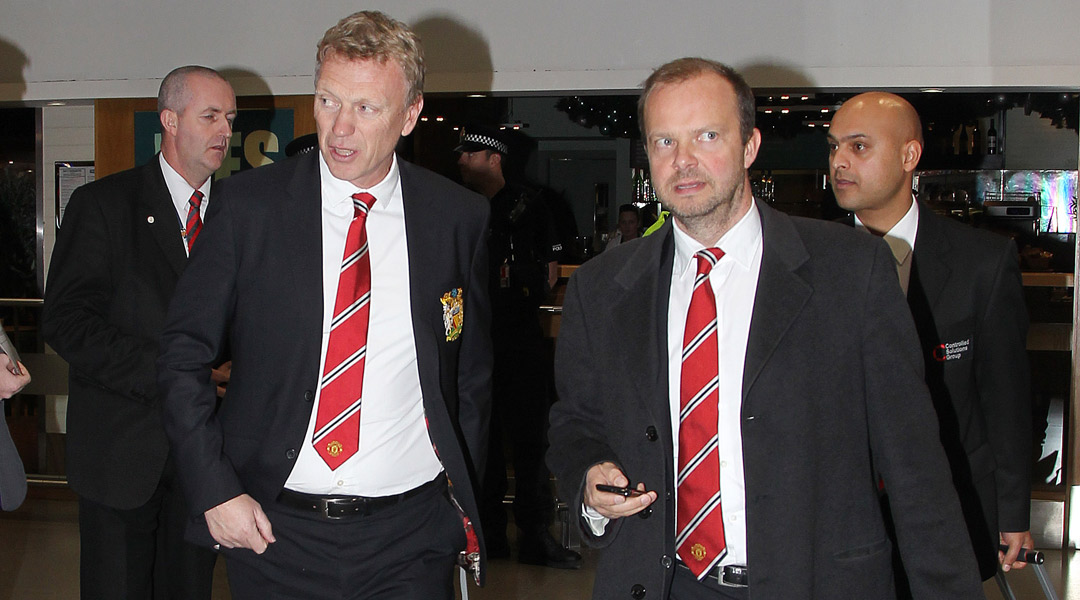
United were bringing the money in to the extent that Woodward claimed United "won’t lose on price" when it comes to attracting the world's best footballers, but spending that money in his new role was proving a chastening experience.
The big clubs from which United tried to sign players face little financial pressures and didn't need to bargain, nor make short-term decisions when their planning had been done a year in advance, while agents can be duplicitous.
"You might be faced with some stark decisions," said Woodward. "Do I pay a relatively large amount of money to an agent or do I lose the player?" United needed to be kissing cousins with some, and not for nothing did Jorge Mendes's daughter do work experience at Old Trafford in the autumn.
We met days after United’s 4-1 hammering by City and, as well as getting baffling abuse because of the selection of Ashley Young, Woodward had learned not to be caught on television putting his head in his hands.
Woodward agreed that Dortmund coach Jürgen Klopp was a “genius,” adding: “Their wage bill is lower than half the clubs in the Premier League, but he’s really got a lot out of them.”
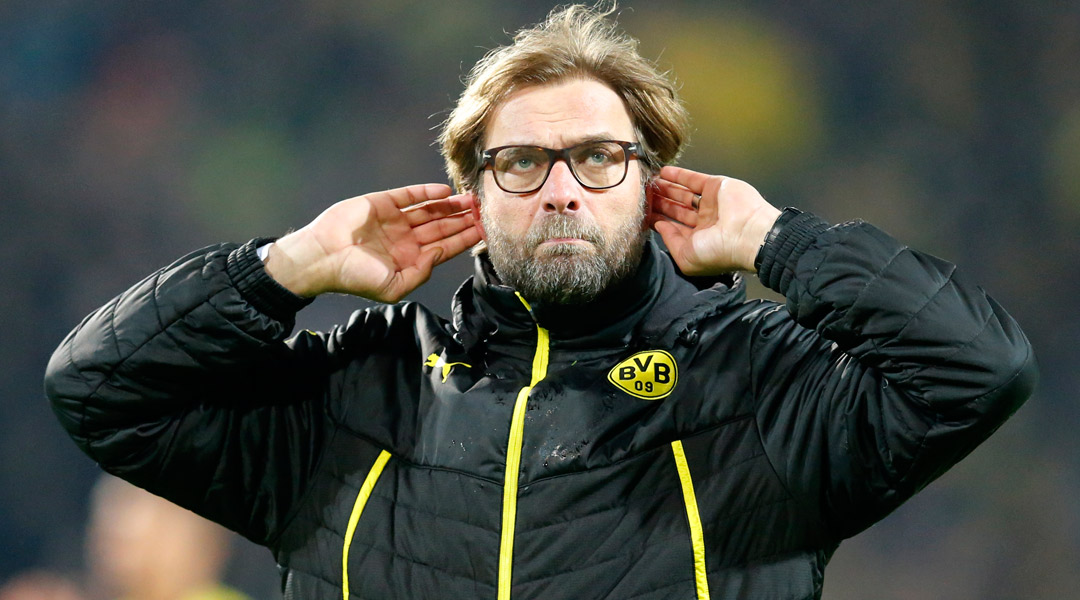
Klopp has been categorical in his insistence that he's content at Dortmund, as he was when Liverpool approached him before appointing Brendan Rodgers. They gave an agent a mandate to bring Klopp to Anfield as a replacement for Kenny Dalglish.
After a day-long chase, the agent obtained Klopp's mobile number from a German journalist.
"Would you be interested in managing Liverpool?" the agent asked.
"No," replied the German.
Fall from grace
Liverpool have flourished under Rodgers, while United slipped from champions to seventh under Moyes.
Though a period of transition was anticipated, United's slump was completely unexpected. There was nothing extraordinary when Rio Ferdinand said in Yokohama last July that "We want to consolidate on what we did last season: winning the league. There’s more experience in the squad and the players who were here last year are still here. They know what it takes to win."
Almost two months of the transfer window remained and Ferdinand wouldn't have been unreasonable in expecting more than the arrival of Marouane Fellaini.
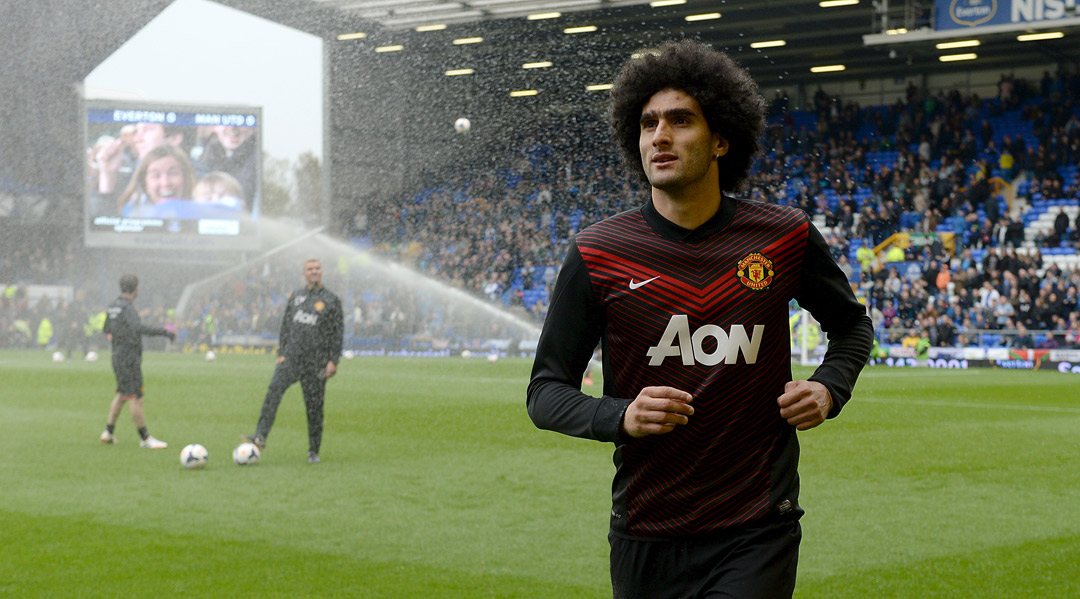
United started the season badly and, save for a run of six wins around Christmas, didn't improve. Their average league position is where they are now, seventh, with a slim prospect of even appearing in the Europa League, a competition fans maligned when Liverpool appeared in it with chants of 'Thursday Night, Channel 5'. The Glazers saw the Europa as consolation for United, who would still probably attract 50,000-plus crowds, but now even that looks unlikely.
Fans had heeded Ferguson's request and supported Moyes at matches, surprisingly so given the poor form. Some were even trying to get Moyes chants going in the away end on Sunday, though there wasn't much enthusiasm nor uptake. Though United fans were pre-disposed to hope that Moyes succeeded, the numbers who felt that possible had dwindled to percentages in single figures according to regular polls.
Fans hoped for improvements which never came, watched farcical exits from domestic cup competitions and the worst home form in over a decade. United will finish outside the top three for first time since 1991, while the football has been cautious and pragmatic, with 51 different teams used in Moyes' 51 matches.
Mutiny
From the autumn onwards, Moyes had to deal with distractions from within. Several players weren't happy, though they weren't going to breach their contract and say it publicly. Men who could have been his greatest allies became foes. Others, like the young player leaking the team before matches, were simply disrespectful.
Players will always brief from their own perspective and some are seldom happy, but the trickle became a stream of dissatisfaction, a problem for the club's public relations. Critical interviews were canned, players delivered cryptic messages through social media, agents talked of their clients wanting to leave while players privately discussed how long their boss had left.
Some felt the club were going backwards and no matter how hard Moyes tried – with initiatives like encouraging the team and management to have a night out with their partners once a month – they simply didn't think he was the right man to manage Manchester United. Results showed that, but Moyes maintained he had a huge rebuilding job to do.
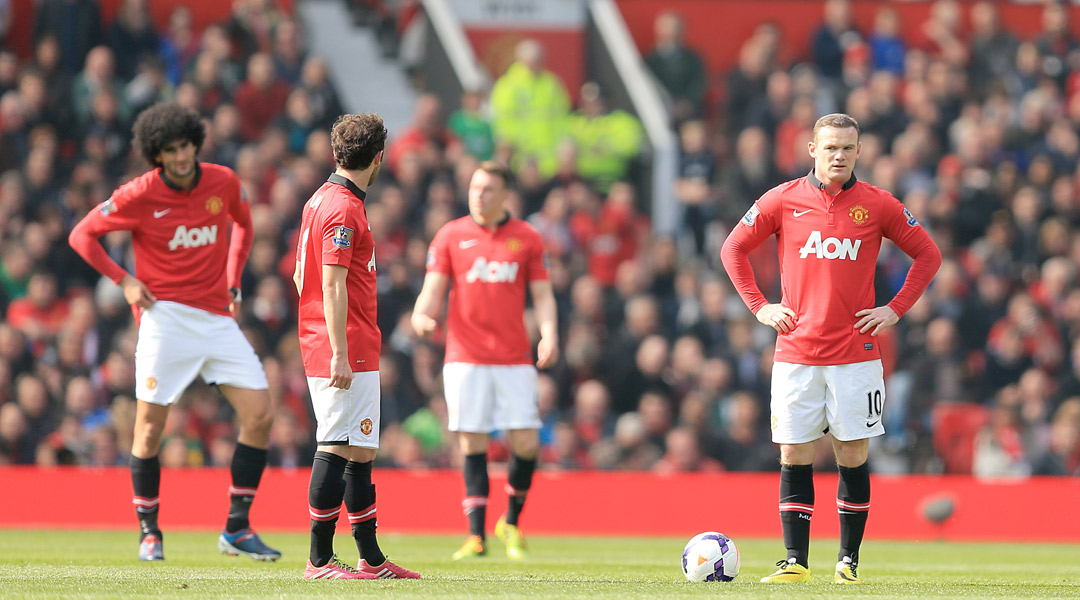
Moyes's coaching team hardly won popularity contests either, and Steve Round and Jimmy Lumsden will also depart after 10 months, though goalkeeping coach Chris Woods will be retained following the good work he's done with David de Gea. The Spaniard, United's best player this season, is happy with his coach and doesn't want another change so soon after losing Eric Steele in last summer's departures. The outfield players didn't welcome that early purge either, for while Rene Muelensteen hasn't excelled as a manager, he's considered an outstanding coach.
The football side was only one of Moyes's problems. He rarely looked comfortable with the media and delivered mixed and ill-considered messages. Like Ferguson, he would have been given help had he stayed, but fans weren't inspired when they heard their manager state that he hoped to "make it difficult" against Newcastle United. The team couldn't even manage that and the Geordies won at Old Trafford for the first time since 1972. There were numerous other examples.
The board's faith in entrusting Moyes with £100 million this summer was repeatedly knocked, specifically by the defeat in Piraeus in February, then the 0-3 home losses to Liverpool and Manchester City. United's record against the top eight was atrocious – just one win in 13. Worried about season ticket sales and Moyes missing even the most moderate targets, the board, with the approval of Sir Alex Ferguson, took the decision to sack him on Sunday. That was the day when it was confirmed that United couldn't qualify for next season's Champions League, the day when United's season under David Moyes was confirmed as a failure.

Andy Mitten has interviewed the likes of Lionel Messi, Eric Cantona, Sir Alex Ferguson and Diego Maradona for FourFourTwo magazine. He also founded and is editor of United We Stand, the Manchester United fanzine, and contributes to a number of publications, including GQ, the BBC and The Athletic.
 Join The Club
Join The Club





